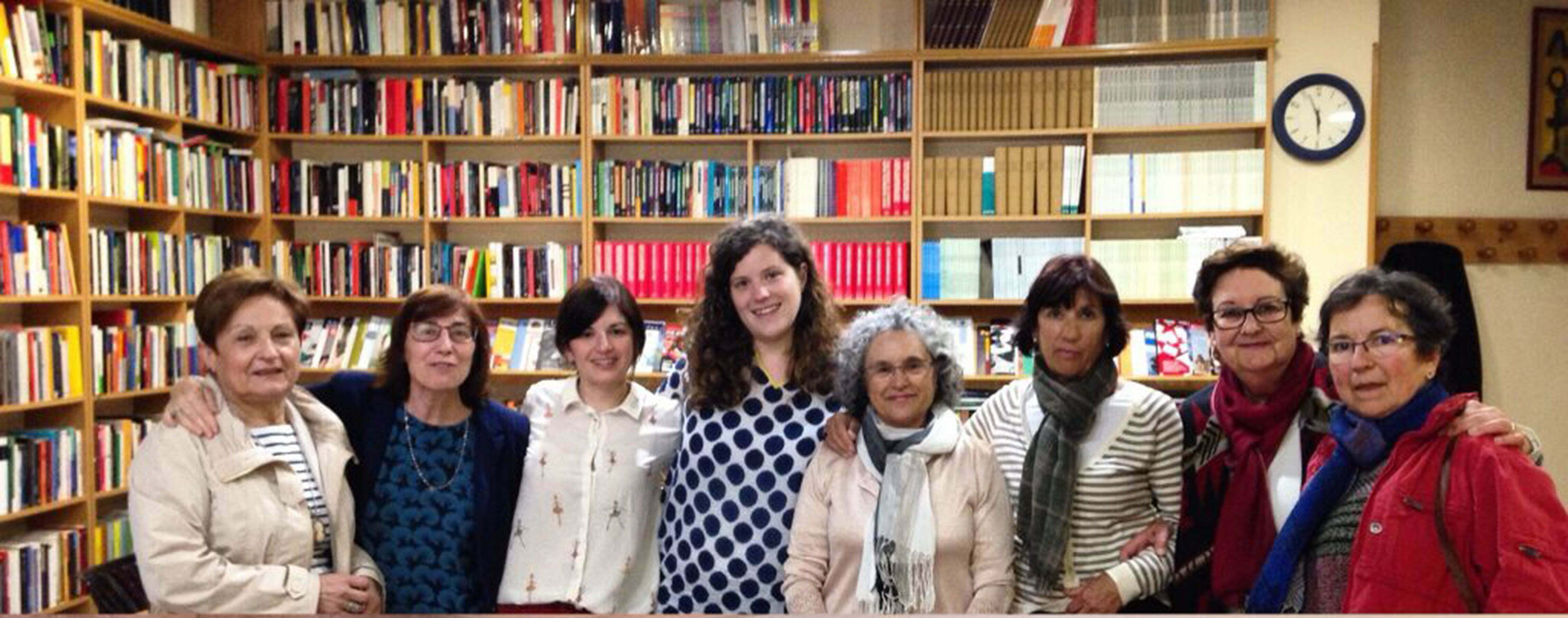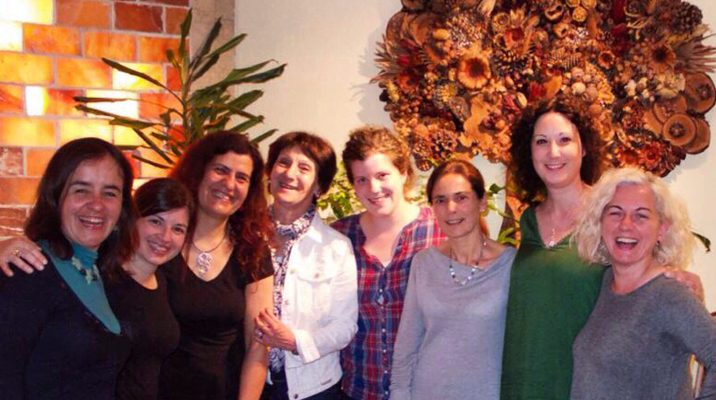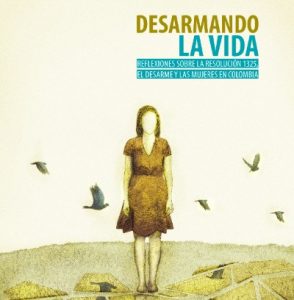As the world’s oldest international feminist organisation, with an aim to ensure real and lasting peace and freedom by non-violent means, WILPF seeks to effectively support women’s grassroots organisations in multiple ways. WILPF’s unique local-global-local approach, which forges strong linkages between international, national and local efforts, makes our engagement not only innovative but also thoroughly tailored for each local context.
This article is part of a series of articles showcasing different aspects of how the local-global-local approach works in reality.
 As part of the project on the implementation of the Arms Trade Treaty (ATT) and the UN Programme of Action on Small Arms and Light Weapons (UNPoA), coordinated by WILPF’s Disarmament Programme, Reaching Critical Will, Mia Gandenberger paid a visit to four WILPF Sections in Cameroon, Colombia, Spain, and Sweden, in the first half of 2016.
As part of the project on the implementation of the Arms Trade Treaty (ATT) and the UN Programme of Action on Small Arms and Light Weapons (UNPoA), coordinated by WILPF’s Disarmament Programme, Reaching Critical Will, Mia Gandenberger paid a visit to four WILPF Sections in Cameroon, Colombia, Spain, and Sweden, in the first half of 2016.
WILPF’s Disarmament Programme has teamed up with these four Sections to advocate for a better implementation of the ATT and the UNPoA, in particular with regard to the gender provisions in the ATT.
Joining together to make it work
The year began with a visit to WILPF Cameroon in Douala on 5-10 February (a report from the visit can be found here.)
In early April, Mia went to visit the Swedish Section in Stockholm. Despite the longstanding cooperation with the Swedish Section on disarmament issues, this was actually the first time Mia visited the Swedish office and there was lots to catch up regarding the ATT project, but also on nuclear disarmament, killer robots, explosive weapons, and so on.
The Swedish Section had been invited to join the national commission on Disarmament and International Law and updated Mia on what that meant for their work and how it would fit with WILPF Sweden’s priorities.
In Stockholm, Mia also had the opportunity to meet with Joy Onyesoh from WILPF Nigeria, Annie Matundu Mbambi from WILPF DRC, and Sylvie Ndongmo from WILPF Cameroon, who luckily were all there also for a joint project with WILPF Sweden to participate in the Stockholm Forum on Security and Development.
The WILPF panel on ‘The proliferation of small arms and light weapons (SALW) in fragile contexts’ brought together the work of all four Sections and allowed Mia to facilitate the conversation with many interested participants (you can find the conclusions of the meeting here.)
Tour de Espagne
Next up, in late April, was a visit to WILPF Spain. It turned out to be a true tour de Espagne as unlike in the other sections the Spanish one does not have an office with fixed staff and is spread out over different cities.
Together with Maribel Hernández, the Project Coordinator, Mia met with the Sections’ civil society colleagues. They went to see the branches of Madrid and Zaragoza and explained to members there what WILPF’s Disarmament programme is working on to get a sense of what the Sections priorities are on disarmament. In Zaragoza they presented WILPF’s work around the ATT and how the arms trade works in Spain at a public event. Mia and Maribel also met with students of the Peace Master from Universitat Jaume I in Castellón during one of their weekly Intercultural Seminars where they talked about WILPF’s work on Women and the Arms Trade Treaty.
 Latino vibes
Latino vibes
The final visit was to WILPF Colombia (LIMPAL) at the end of May to join them for the launch of their report ‘Desarmando la vida’. This project is about how the implementation of UNSCR 1325 and disarmament need to get together in Colombia, in particular to achieve lasting peace after decades of internal conflict. After the big launch in Bogotá at the National Library, everyone shared a meal while the participants of the project in San Cristóbal received their certificates.
The second launch in Villavicencio took place at the UN Women offices, which allowed a lively debate among practitioners and activists working with women in Colombian communities.
What makes WILPF special
These visits demonstrates the manifold ways that WILPF engages trough around the world and how each Section has found their way to translate what is happening on the international level to what that means in their national and regional contexts, what works and what doesn’t.
While these four Sections will continue their work on the local level, the Project Coordinators will join the International Secretariat in highlighting the challenges our local Sections are facing on the ground at the upcoming ATT conference 22-26 August 2016 in Geneva.
The series of articles based on WILPF’s local-global-local approach will continue tomorrow. This time we are bringing out the story of Syrian women activists and why this approach is so important for our work in Syria.


 Latino vibes
Latino vibes


